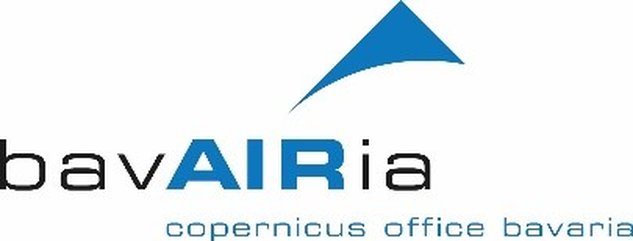
Bavarian Copernicus Strategy Group
Establishment of the Copernicus Office Bavaria (2006) and the regular meetings of its local Copernicus Arbeitskreis (Copernicus Strategy Group) (2005).
bavAIRia e.V. was founded in 2006 and is a legal association of about 320 member companies and institutions. About two third are linked to aviation and about one third is linked to the space and space application sector, however, it is often difficult to put a separation line between the two sectors since companies often engage in both sectors. About 80 % of bavAIRia’s members are small and medium-sized enterprises, thus, bavAIRia mostly acts as a mediator between the policy side and the business side. About 55 % of the Bavarian actors in aerospace are members of the cluster organisation. bavAIRia has a mandate of the Bavarian State Ministry for Economic Affairs, Regional Development and Energy (StMWi) to represent the Bavarian Aerospace interests in Bavaria and beyond. Bavaria is member of Nereus, the Network of European Regions using space technologies; bavAIRia has the mandate to represent Bavaria in this association of currently 26 member regions. The association regularly engages in the coordination of European and esa projects linked to space and aviation. On the esa side bavAIRia hosts the German Ambassador for the Business Application Program of esa, which is part of ESA’s Advanced Research in Telecommunications Systems (Artes) program and also supports EO activities. bavAIRia also supports the StMWi in designing policies for aviation as well as for space/space applications. Latest developments particularly in drone technologies, be it sensors or navigation, link both sectors, space applications and aviation closer together. With the help of about 70 to 80 events per year, the association engages in, it tries to bring more added value and service offers to its members and the local key stakeholders by leading and organising working groups, expert events, project and networking meetings on international, national as well as local level.
In 2006 the Custer Aerospace started to employ its first GMES Office Bavaria manager. The opening ceremony for GMES Bavaria took place at the German Aerospace Centre (DLR) Oberpfaffenhofen accompanied by the Bavarian Minister of Economy and Director Volker Liebig, responsible for the Earth Observation (EO) Program of ESA. The office served as a contact point for Earth Observation related affairs and business, mostly with a focus on companies. The office continued to organize the regular GMES Strategy Sessions at the Bavarian Ministry of Economic Affairs, - the GMES Arbeitskreis - later on renamed to Copernicus Arbeitskreis, which was actually the organ suggesting to open the “GMES Office Bavaria” as part of the newly founded Bavarian Aerospace cluster management organisation bavAIRia e.V.
The Arbeitskreis meets three to four times a year and the number of participants has increased from 15-20 in the first year to approximately 45 regular participants today. It tries to go beyond regional foci, dealing with the European as well as the national dimension of Copernicus by inviting speakers from EU, ESA and the German Space Management part of DLR (Representative of Germany in space-relevant EU and ESA committees). The European focus is also manifested in that bavAIRia has won and coordinated four EU projects in open competition related to Earth Observation. The Arbeitskreis shows new funding opportunities for the EO community, gives updates on the Copernicus program and also brings together the local institutional Copernicus users with EO service companies, and the local regional agencies show interest in the work oft he Bavarian Copernicus Office and are asking for more information. The engagement with local regional agencies will be further increased, which will potentially increase the impact of the European Copernicus programs. Moreover, more synergies have to be sought together with local, here Bavarian, programs in GIS, in geodesy, in EO, in drones, among other. The large EO research community in Bavaria, including the German Remote Sensing Data Center (DFD), Oberpfaffenhofen, has generated a number of spin-offs and start-ups in the last 15 years, with increasingly more showing up in the Arbeitskreis.
